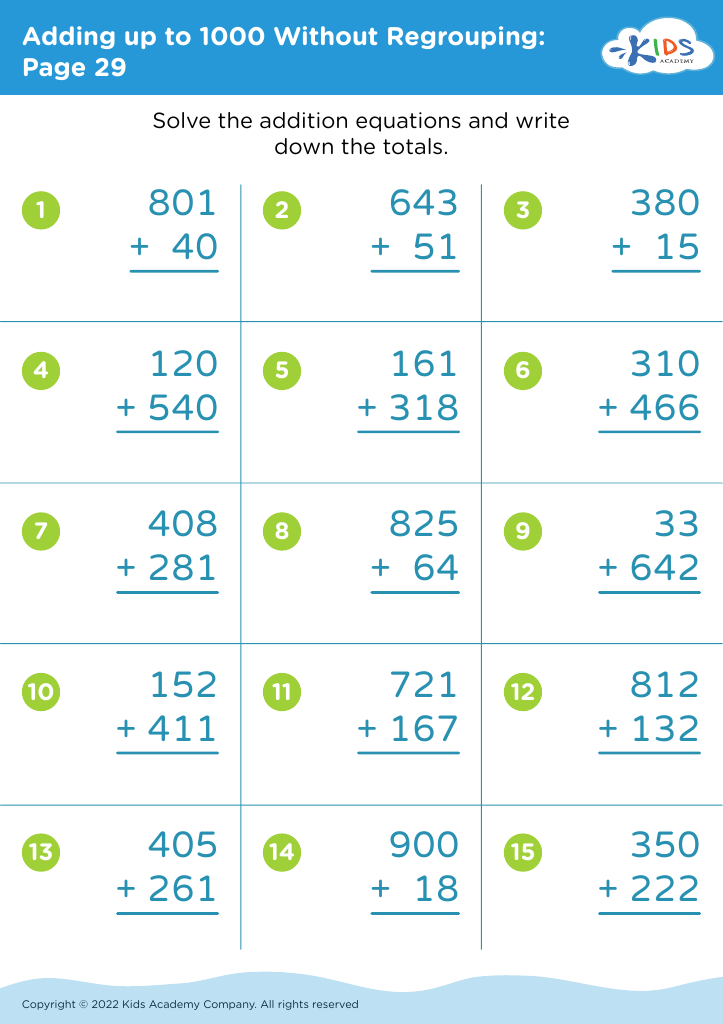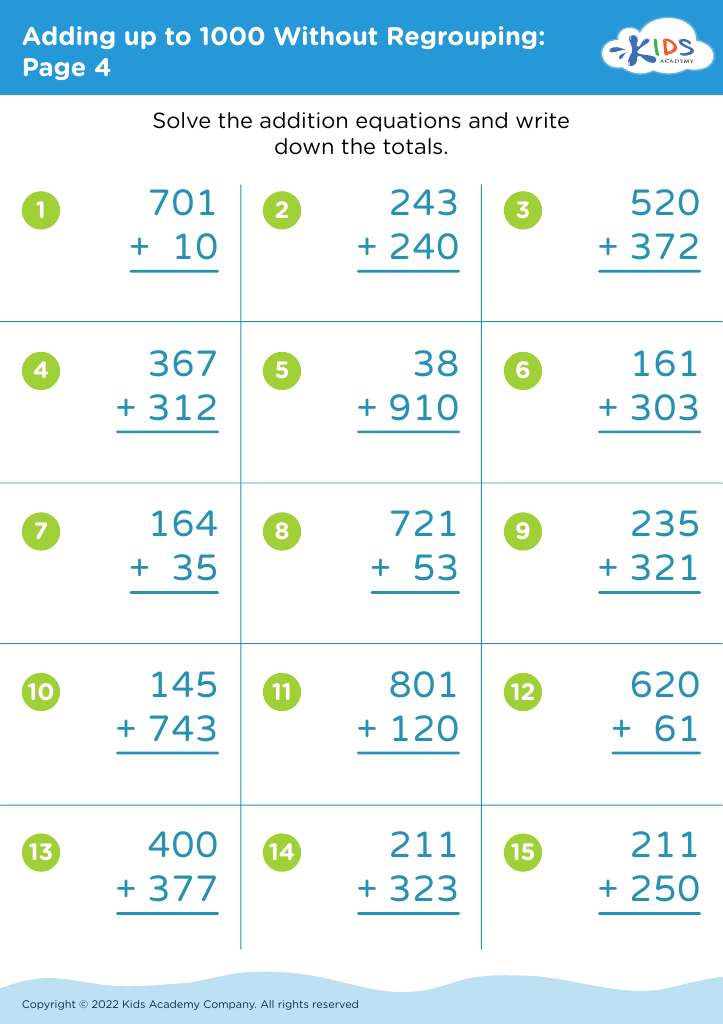Word Recognition Adding up to 1000 Worksheets for Ages 5-9
3 filtered results
-
From - To
Enhance your child's reading and mathematical skills with our "Word Recognition Adding up to 1000 Worksheets" designed specifically for ages 5-9. These engaging resources help young learners connect written words to numerical concepts, fostering comprehension in an enjoyable way. Each worksheet combines fun word recognition activities with adding skills, enabling students to practice counting and simple addition through relatable, real-world contexts. With a variety of exercises tailored to different learning styles, children will gain confidence as they master both language and math. Let the journey to literacy and numeracy begin with our comprehensive collection of interactive worksheets! Perfect for home or classroom use.
Word recognition is a fundamental skill that significantly impacts a child's reading proficiency and overall academic success, especially for children aged 5-9. As they begin their literacy journey, fluency in recognizing words quickly enables young learners to read more confidently and with greater comprehension. Parents and teachers should care about fostering this skill because it serves as the foundation for much of their future learning.
Children who struggle with word recognition may find reading to be a frustrating or daunting task. This can hinder their enthusiasm for learning, leading to potential gaps in knowledge across subjects, as much of education relies on strong reading skills. Encouraging robust word recognition strategies, such as phonics, sight words, and repetitive reading, can aid in developing fluency and enhancing comprehension.
Moreover, strong word recognition contributes to better self-esteem and motivation. Children who can read confidently are more likely to engage with texts, participate in classroom discussions, and explore various subjects independently. Ultimately, investing in the development of word recognition is vital for nurturing well-rounded, literate individuals prepared for the challenges of both academic and personal pursuits. By supporting this skill, parents and teachers empower children to embrace learning with a positive mindset.













